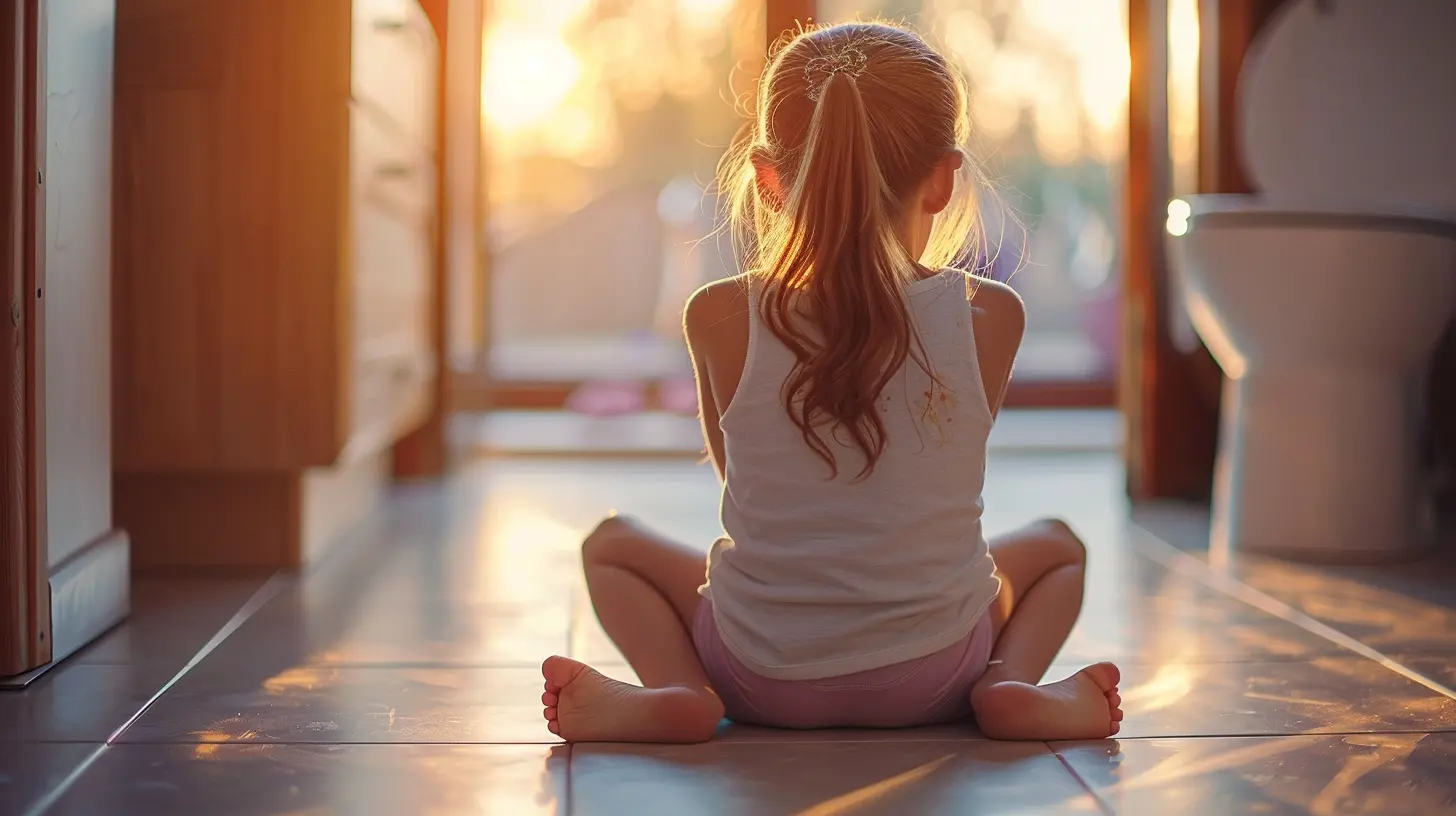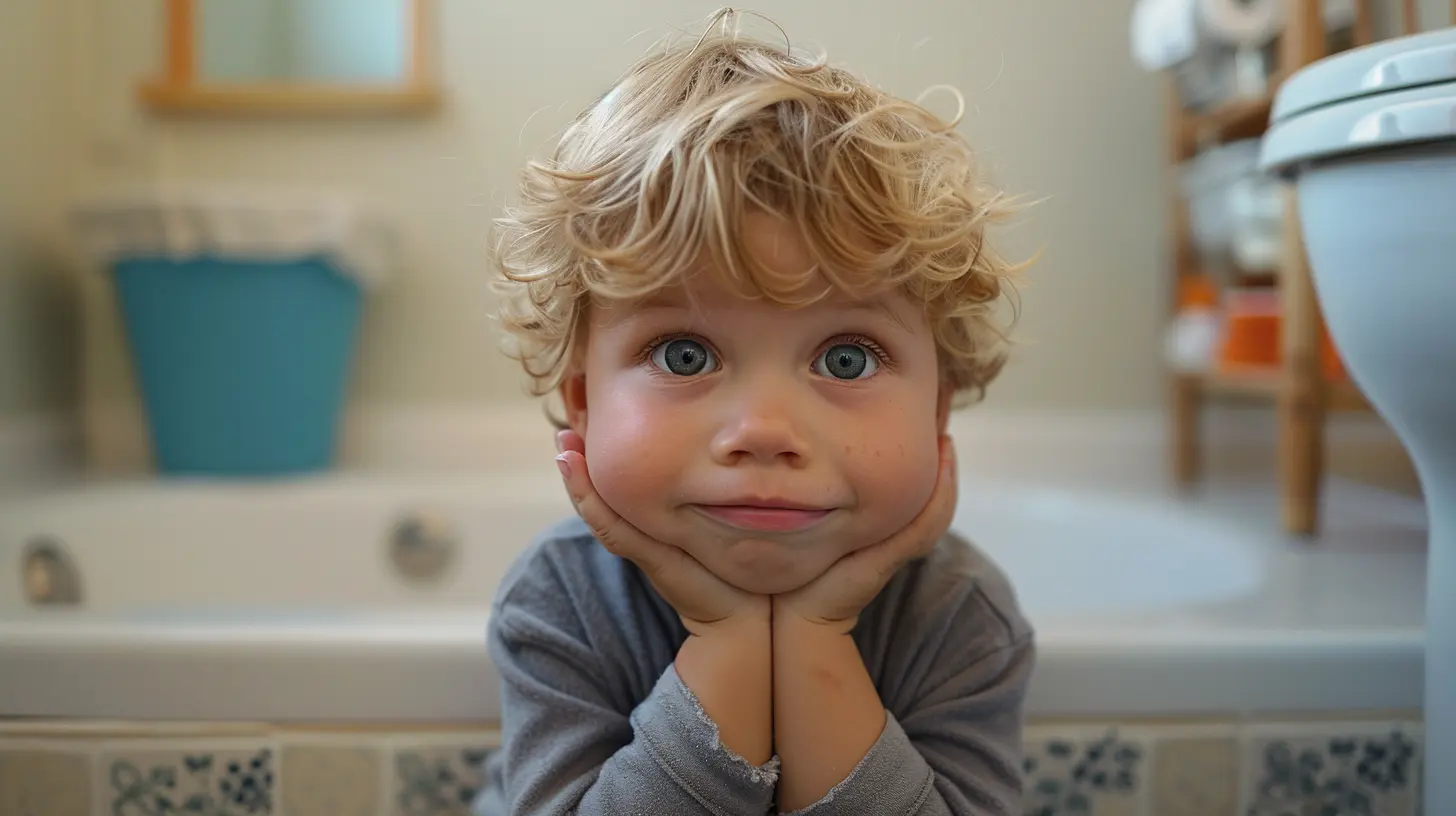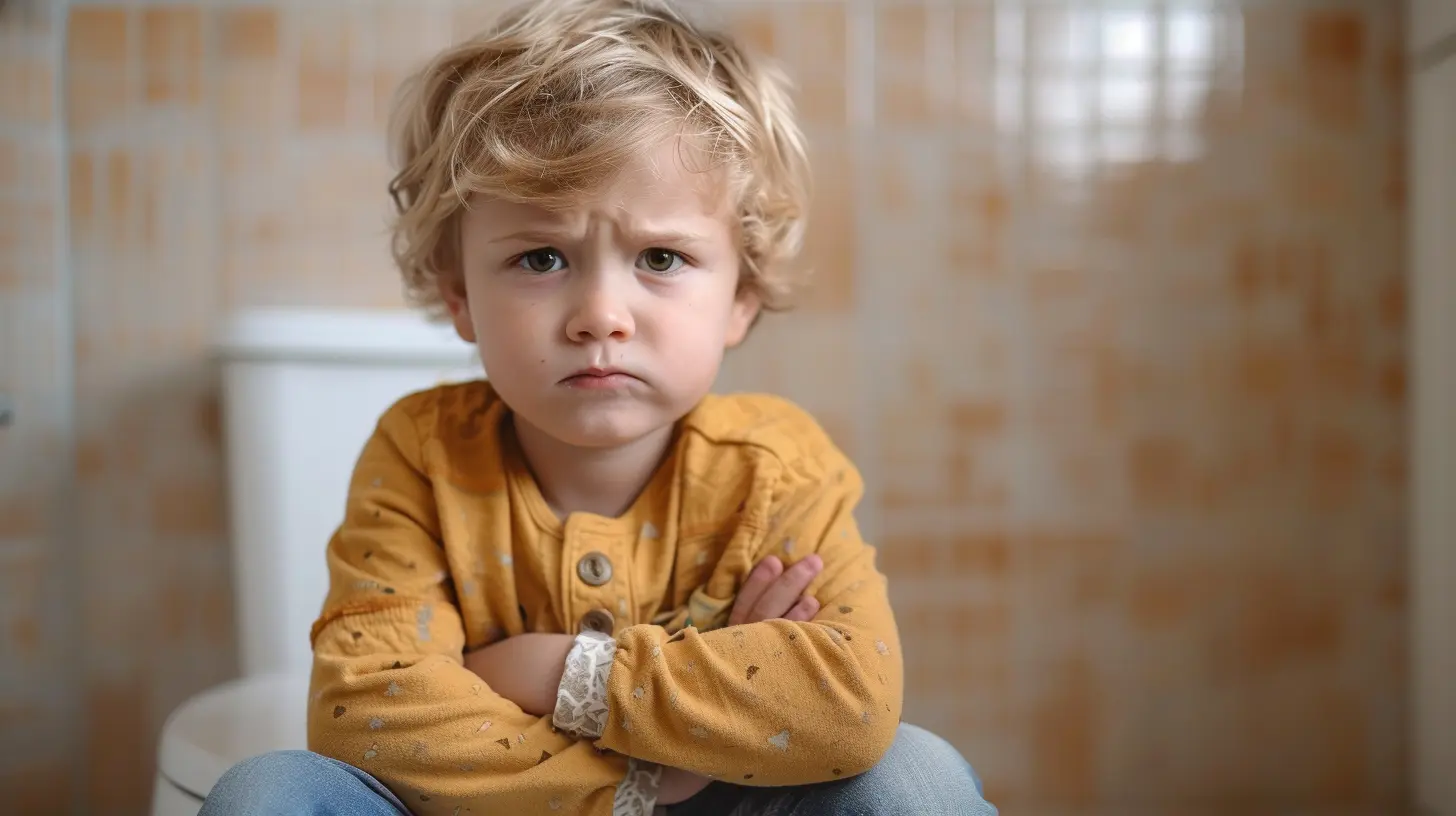Dealing with Potty Training Setbacks: Staying Calm and Consistent
22 November 2025
Potty training can feel like a roller-coaster ride—you have those thrilling “they finally did it!” moments followed by the frustrating “wait, what just happened?” setbacks. You’re not alone if you’ve suddenly found yourself scrubbing yet another pair of soggy undies after a week of dry days. Potty training setbacks are normal. Yep, even for the most “ready” toddlers. The key? Staying calm, consistent, and knowing you're not failing—you're just navigating a bumpy part of the journey.
Let’s dive into how to handle those hiccups without losing your cool, your patience, or your mind.
What Are Potty Training Setbacks?
Before we talk about how to deal with them, let’s be clear on what we’re talking about. A potty training setback is when a child who seemed to be making progress starts having more accidents. Sometimes they refuse to use the potty altogether. It can come out of nowhere—one day, you’re high-fiving after a successful trip to the bathroom, and the next you’re cleaning up pee from the carpet again.Setbacks don’t mean your child is regressing permanently. It's just a detour. And yes, it’s frustrating, but it’s also common—and fixable.
Why Do Setbacks Happen?
Ah, the million-dollar question. Potty training isn’t just about learning to use the toilet. It’s a major shift in routine, control, and independence. So, when life gets tricky, kids might revert to what feels safe and familiar: diapers or accidents.Here are some common reasons setbacks happen:
1. Big Life Changes
A new sibling, starting daycare, moving homes—these moments rattle everyone, especially toddlers. Their little worlds are shifting, and they might express their stress through bathroom behavior.2. Illness or Constipation
Being sick, especially with tummy troubles or a UTI, can mess with potty habits. Also, if your child experiences pain while going, they might start holding it in—which leads to accidents.3. Emotional Upsets
Just like adults, kids have off days. Arguments with parents, changes in routines, or even a missed nap can create emotional waves big enough to disrupt training.4. Too Much Pressure
Sometimes the desire to “hurry up and be done with diapers” backfires. If kids feel like they’re disappointing you, they can get anxious—and that anxiety makes accidents more likely.
How to Stay Calm When Setbacks Happen
We get it—it’s hard not to feel disappointed. You worked hard, your toddler worked hard, and now it feels like you’re back at square one. But here’s the golden rule: stay calm.Let’s talk about a few ways to hold onto your sanity during those “uh-oh” moments.
1. Breathe First, React Later
Pause before responding. A deep breath gives you a second to shift from frustration to support. Remember, your child isn’t doing this to you—they’re going through something themselves.2. Ditch the Blame Game
Avoid language that shames or blames. Saying, “Why’d you pee your pants again?” may seem harmless, but it can crush a little one’s confidence. Instead, try, “Oops, accidents happen. Let’s get cleaned up.”3. Keep Your Cool Publicly (Vent Privately)
It’s okay to feel overwhelmed—just tag out when needed. Text a friend, rant to your partner after the bedtime routine, or simply step outside for a few minutes of silence. Your peace matters too.
Consistency is Key: How to Stay on Track
Now that we've got the emotional side handled, let’s talk action. Consistency is your magic wand during these moments.1. Stick to Your Routine
Even if accidents are happening, keep the potty schedule going. Offer potty breaks after meals and before bed. Consistency signals to your child that this is still the plan—even if it's a bumpy ride.2. Praise the Effort, Not Just the Success
Celebrate trying. Give high-fives for sitting on the potty, even if nothing happens. Recognize dry periods. Small wins add up and help rebuild their lost confidence.3. Use Gentle Reminders
Instead of barking “Go to the potty!” every hour, try, “Your body might need a bathroom break soon—let’s check together.” It feels more like teamwork and less like orders.4. Reintroduce Incentives (If Needed)
Sometimes a mini reward chart or a small prize can reignite motivation. Stickers, extra storytime, or a tiny treat can work wonders without making it a bribe-driven mission.When to Take a Step Back
Here’s a hard truth: sometimes, the best move is to pause potty training altogether.If your child is resisting every trip to the toilet, melting down over accidents, or showing fear, it might be time to pump the brakes. And that’s okay.
Taking a break doesn’t mean giving up—it means giving your child the space to regroup emotionally.
Set a reminder to try again in a week or two. Go back to diapers or pull-ups with zero shame, and talk about it kindly with your child: “We’re going to take a little potty break and try again when you’re ready.”
Tips to Make the Process Smoother
Let’s boost your odds of getting back on track (without losing your mind):1. Read Potty Books Together
Toddlers love stories, especially ones where characters go through the same things they do. Potty-themed books can make the process feel exciting and normal.2. Let Them Take the Lead
Foster independence. Let them flush, wipe (with help, of course!), and wash hands on their own. Let them choose which undies to wear. When they feel in control, it builds motivation.3. Use Positive Language
Say, “Let’s see if anything wants to come out!” instead of “Don’t wet your pants again.” Changing your language can change their mindset.4. Stay Prepared
Keep a change of clothes in your bag, pack extra wipes, and expect an accident or two. Being prepared helps you stay relaxed when things go sideways.You’re Doing Great, Even When It Doesn’t Feel Like It
Parenting isn’t about perfection—it’s about showing up, again and again, with love. Potty training isn’t a straight line. It’s a loop-de-loop of progress, resistance, excitement, and messes.Setbacks don’t mean you’re getting it wrong. They mean your little one is learning in their own way, at their own pace. Trust the process, trust your child, and trust your instincts.
And remember—no one goes to college in diapers.
So next time an accident happens? Smile (even if it’s through gritted teeth), offer a hug, and say, “Let’s try again later.”
You’ve got this.
FAQs on Potty Training Setbacks
Q: My child was potty trained and suddenly started having accidents—why?A: Changes in routine, emotional stress, or even constipation can all trigger a setback. It’s normal and usually temporary.
Q: Should I punish my child for accidents?
A: Nope. Punishment can create fear and shame, which only make things worse. Stick to encouragement and patience instead.
Q: When should I see a pediatrician about potty training issues?
A: If your child complains of pain, refuses to go for days, or you suspect a medical issue like a UTI, check in with your doctor.
Q: How long do potty training setbacks last?
A: It varies. Some clear up in a few days; others might take weeks. The key is consistency and support.
Final Thoughts
Potty training setbacks can leave you feeling defeated—but you’re not alone, and you’re definitely not doing it wrong. Every child learns differently, and every accident is just a step toward mastery. Stay calm, remain consistent, and be kind to both your child and yourself.After all, this is just one of many parenting challenges where love and patience lead the way. Messy? Sure. But also totally worth it.
all images in this post were generated using AI tools
Category:
Potty TrainingAuthor:

Maya Underwood
Discussion
rate this article
1 comments
Sarina Moses
Great article! Potty training can be a challenging journey, and it’s essential to remain calm and patient during setbacks. Consistency and encouragement truly make a difference. Remember, every child progresses at their own pace—celebrate the small victories along the way! Thank you for this helpful advice!
November 23, 2025 at 3:36 AM

Maya Underwood
Thank you for your thoughtful comment! I'm glad you found the advice helpful. Celebrating those small victories is key!


